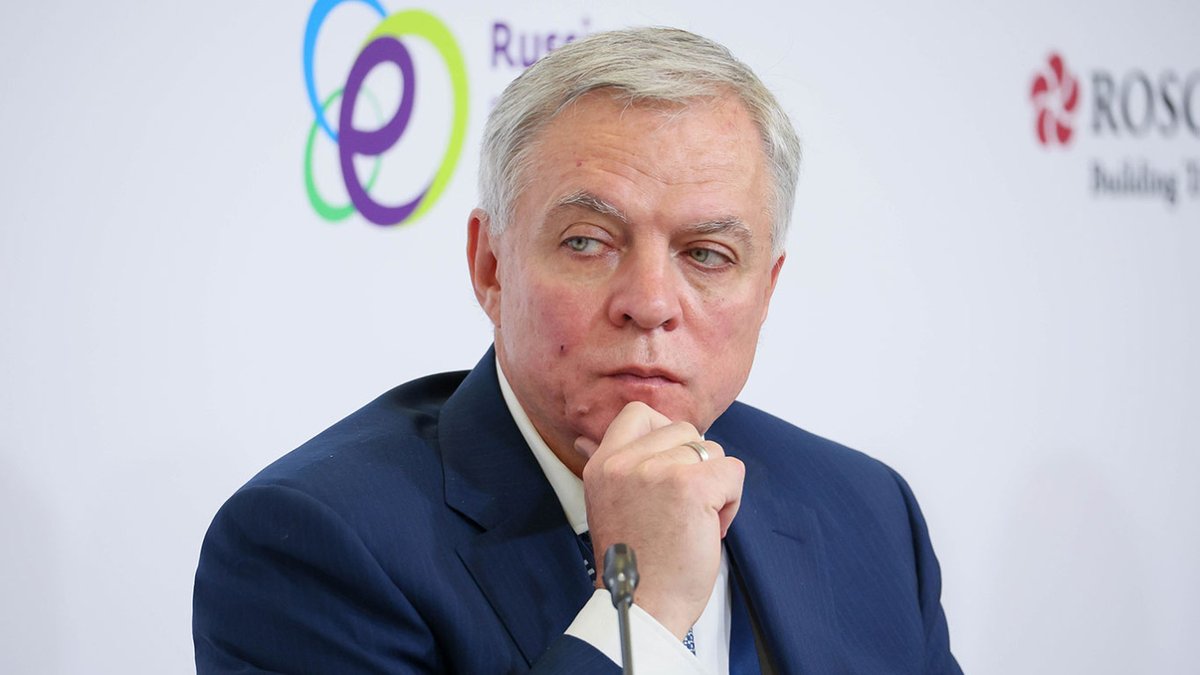
Mystery in Moscow: Russian Oil Tycoon Andrei Badalov Dies in Shocking 17th-Floor Plunge

In a development that has sent shockwaves through Russia’s energy and political elite, prominent oil executive Andrei Badalov has been confirmed dead after plunging from the 17th floor of a high-rise building in Moscow. The circumstances surrounding his death have raised serious questions, not just for investigators, but also for a nation increasingly used to high-profile figures meeting mysterious ends. What makes the case even more puzzling is the fact that Badalov resided on the 10th floor of the same building—leading many to suspect foul play in what authorities have initially described as a suicide.
Badalov, who served as a senior executive in one of Russia’s state-linked oil giants, had a long-standing reputation as a shrewd operator in both business and political circles. He was said to have been deeply embedded in the inner workings of Russia’s vast and often opaque energy sector, a world where power, politics, and profits intersect in deadly ways. His sudden death adds to the growing list of Russian oligarchs, executives, and businessmen who have died under mysterious or violent circumstances in recent years.
According to preliminary reports, Badalov was found dead on the pavement outside his residential apartment complex early Monday morning. Eyewitnesses reportedly heard a loud thud and screams, followed by a rush of security personnel and emergency services to the scene. Moscow police confirmed that the body was identified as that of Andrei Badalov, and that he had fallen from the 17th floor of the building—seven floors above his registered apartment.
The detail about the floor difference has become a central focus of speculation. Why would Badalov go to a floor he didn’t live on if he was planning to take his own life? Residents of the building, interviewed anonymously, expressed confusion and skepticism. “Everyone knows Andrei lived on the 10th floor,” one resident told Russian media. “If he was alone and wanted to jump, why go higher? Something doesn’t make sense.”
While the official line from authorities has yet to be finalized, sources within Russian investigative circles claim that CCTV footage is being reviewed and that toxicology tests have been ordered. Still, the public mood is tense, with many suspecting that the truth behind Badalov’s death may never come to light.
What adds further complexity to the case is Badalov’s professional history and rumored connections. As an executive with intimate knowledge of Russia’s oil export routes, pricing strategies, and possible backdoor deals involving international partners, he was considered both an asset and a liability in high circles. Industry insiders say that Badalov had recently begun withdrawing from certain public functions and was reportedly under pressure related to internal audits of energy revenues.
Rumors of whistleblowing have also surfaced, with unnamed sources claiming that Badalov was preparing to leak sensitive documents to international authorities. However, these claims remain unverified and could be part of the speculation whirlwind that often surrounds such high-profile deaths in Russia. Still, the nature and timing of his demise have led to calls for a full and transparent investigation—though few in Russia expect such transparency to materialize.
This latest tragedy fits into a disturbing trend that has characterized post-pandemic Russia, where a spate of deaths among businessmen—particularly in the oil, gas, and financial sectors—has become alarmingly frequent. In 2022 alone, at least a dozen senior executives and oligarchs linked to Gazprom, Lukoil, and other major corporations died under suspicious circumstances, often dismissed by officials as suicides or accidents. From falls off yachts to hanging in basements, the pattern has not gone unnoticed by global media or human rights observers.
International response to Badalov’s death has so far been muted, but analysts predict that the incident will further strain Russia’s already tense relations with Western nations. European diplomats have quietly expressed concern over what they call the “Kremlin’s culture of silence,” where dissent, insider knowledge, or even the appearance of disloyalty can allegedly lead to deadly consequences.
In financial markets, shares in Badalov’s company took a modest dip, while energy stocks across the Moscow Exchange experienced minor fluctuations. Analysts suggest that while the death of one executive won’t crash the market, it reinforces fears about the internal instability of Russia’s business elite amid growing international sanctions and domestic political pressure.
Friends and colleagues of Badalov have expressed grief and disbelief. A former associate, speaking on condition of anonymity, described him as a man who was "cautious, not reckless," and "not someone you’d ever expect to end things like this." Another insider added, “Andrei knew too much, and in this country, sometimes that’s more dangerous than knowing too little.”
Badalov’s family has yet to release a formal statement. However, close relatives are reportedly cooperating with investigators and have asked for privacy during what they describe as an "unimaginable loss." Funeral arrangements are being kept private, with speculation that the ceremony may be closely monitored or even restricted.
Meanwhile, online forums and social media in Russia and abroad are buzzing with theories, tributes, and outrage. On Nairaland, where news of Badalov’s death first gained major traction, users debated everything from possible mafia involvement to covert intelligence operations. “It’s not suicide, let’s stop pretending,” one user wrote. “This is another case of someone being silenced before they could talk.”
As the investigation unfolds—or is buried, depending on one’s perspective—one thing is certain: the death of Andrei Badalov has once again illuminated the dark and dangerous corridors of power in Russia. In a country where silence is often bought with fear, and where truth is as malleable as oil, the fall of one man from the 17th floor may be more than just another name in the headlines. It may be a chilling reminder that in the Russian oil industry, falling from grace can be very, very literal.

